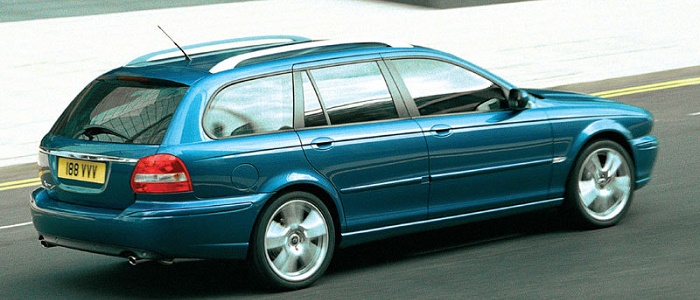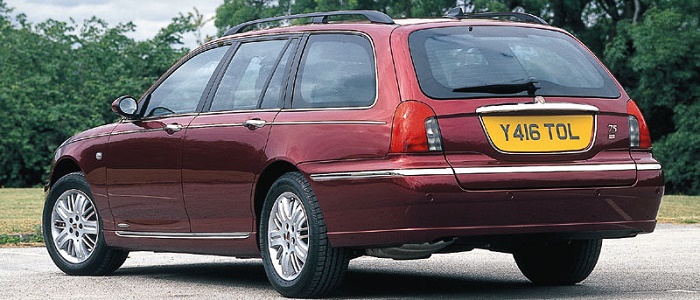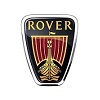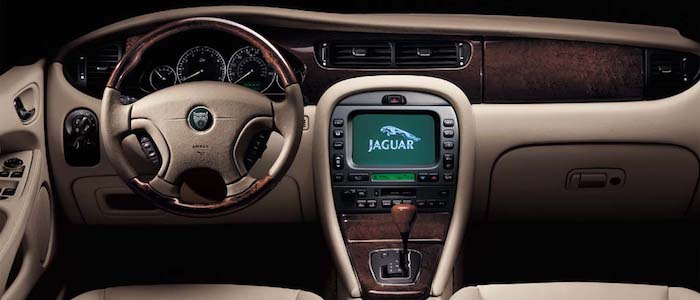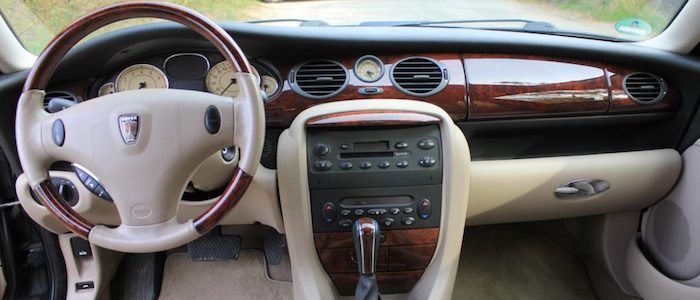Compare two cars
Compare any two cars and get our Virtual Adviser™ opinion
Dimensons & Outlines
Check vehicle history
Engine
Performance (manual gearbox)
Performance (automatic gearbox)
Expenses
Virtual Adviser's™ opinion
We are here considering two somewhat similar cars, but we can't deny some of the obvious differences. For a start, they are not even classified under the same segment, with the Jaguar being a large family car and the Rover representing luxury car vehicle class. The first one has a Jaguar-engineered powertrain under the hood, a 6-cylinder, 24-valves 157hp unit, while the other one gets its power and torque from a 6-cylinder, 24-valves 150hp engine designed by Rover.
SafetyBoth vehicles got tested by European New Car Assessment Programme (Euro NCAP), with the same number of safety stars gained in the process. Still, apart from the official crash test results there are other things we need to be aware of. The second vehicle is a luxury car and that gives it a marginal advantage over the large family car competitor, at least that's what statistics show. On the other hand, if we'd like to consider vehicle mass in this context too, which we definitely should, X-Type offers a marginal difference of 4% more metal.
ReliabilityManufacturers have been building their reliability reputation for decades now and, generally speaking, it appears that Rover as a brand displays somewhat better results, at least on all of the models level. These are the official statistics, while our visitors describe reliability of Jaguar with an average rating of 4.2, and models under the Rover badge with 4.5 out of 5. Some independent research have also placed X-Type as average reliability-wise, and 75 is more or less at the same level.Above it all, drivers of cars with the same engine as X-Type rank it on average as 5.0 out of 5, exactly the same as the other one.
Performance & Fuel economyJaguar is a bit more agile, reaching 100km/h in 0.3 seconds less than its competitor. In addition to that it accelerates all the way to 207 kilometers per hour, 4km/h more than the other car. When it comes to fuel economy the winner has to be Rover 75, averaging around 8 liters of fuel per 100 kilometers (35 mpg), in combined cycle. We can't ignore that 16% difference compared to X-Type.
Verdict
Rover appears just a bit more reliable, although the difference is truly marginal. The most important thing when deciding between any two vehicles should always be safety, both passive and active. In this case though, it seems that both cars show similar levels of passenger protection all together, so that won't break a tie. But one thing that actually could is the performance, with Jaguar being considerably quicker, thus putting more smile on driver's face. It does come at a cost though, and that's the fuel consumption... I believe that, when we take all into account, we have only one winner here - the Rover. In any case that's my personal view, built upon all the data available to me. What should decide here though is the way you feel about the two vehicles, and I hope you'll find my guidelines useful in the process. In case you have two minutes to spare I invite you to define your needs, desires and budget and see which car would be chosen by the virtual adviser™, among more than 12.000 different ones in our database.























